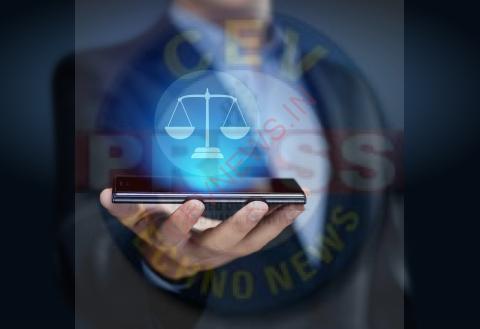FUNDAMENTAL RIGHTS IN THE DIGITAL AGE: CHALLENGES AND PERSPECTIVES
Fundamental Rights in the Digital Age: Challenges and Perspectives
Introduction
In the rapidly evolving landscape of the digital age, fundamental rights have taken on new dimensions and complexities. As technology becomes increasingly integrated into every aspect of our lives, questions surrounding privacy, freedom of expression, and access to information have gained renewed significance. This article delves into the challenges and perspectives related to fundamental rights in the digital age.
- Privacy in the Digital Sphere
One of the foremost challenges in the digital age is the preservation of privacy. With the proliferation of social media platforms, online transactions, and data-driven services, individuals’ personal information is more vulnerable than ever. Data breaches and cyberattacks have highlighted the need for robust legislation and mechanisms to safeguard personal data. Striking a balance between the convenience offered by digital services and the right to privacy is a pressing concern.
- Freedom of Expression and Online Discourse
The digital age has empowered individuals to express their thoughts and opinions on a global scale through social media, blogs, and online forums. However, this newfound freedom of expression has also led to concerns about hate speech, misinformation, and online harassment. Stricter regulation of online platforms and content moderation has become a contentious issue, as ensuring a safe digital environment while respecting freedom of expression requires careful consideration.
- Access to Information and Digital Divide
While the internet has democratized access to information, a significant portion of the global population still lacks reliable internet connectivity. This digital divide exacerbates existing inequalities, as access to education, job opportunities, and social services increasingly depend on digital tools. Bridging this divide is crucial to ensure that fundamental rights, such as the right to education and equal opportunities, are upheld in the digital age.
- Surveillance and Government Control
Advancements in surveillance technologies have raised concerns about government overreach and infringements on individuals’ privacy. Mass surveillance programs, justified by security concerns, can potentially lead to a chilling effect on freedom of expression and dissent. Striking a balance between security needs and citizens’ rights is a delicate task that requires robust legal frameworks and oversight mechanisms.
- Digital Rights Legislation and International Cooperation
The digital age transcends geographical boundaries, making it essential to establish international norms and agreements regarding fundamental rights. Collaborative efforts are necessary to address challenges such as cross-border data flows, jurisdictional conflicts, and harmonization of legal standards. Crafting effective digital rights legislation and fostering international cooperation will be pivotal in ensuring that fundamental rights are upheld in the digital age.
- Technological Advancements and Ethical Implications
Emerging technologies like artificial intelligence (AI), biometrics, and surveillance tools bring both opportunities and ethical dilemmas. The use of AI in decision-making processes, for instance, raises questions about accountability, transparency, and potential biases. Stricter ethical guidelines and technological assessments are imperative to prevent the erosion of fundamental rights while embracing technological progress.
Conclusion
As society continues to navigate the complexities of the digital age, the challenges and perspectives surrounding fundamental rights remain at the forefront of discussions. Striking a balance between the benefits of technological advancements and the protection of individual liberties requires collaboration between governments, technology companies, civil society, and citizens. By addressing privacy concerns, regulating online discourse, bridging the digital divide, and establishing international norms, we can pave the way for a digital future that respects and upholds fundamental rights.


